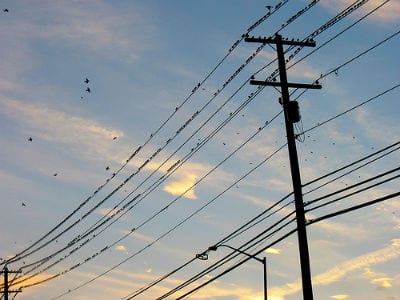 Kansas City knows a thing or two about large-scale building projects. In the late ’90s, Sprint began construction on its 200-acre corporate campus in Overland Park, Kan., a suburb of Kansas City. The latest project to hit the city, Google Fiber, an ultra high-speed Internet access experiment that broke ground earlier this year, will connect Kansas Citians to an insanely fast network. Pulling off such a large-scale project will require a lot of technicians, substantial coordination and a big investment in field service. And as the project evolves, it could have a massive impact on how technicians in the field do their jobs.
Kansas City knows a thing or two about large-scale building projects. In the late ’90s, Sprint began construction on its 200-acre corporate campus in Overland Park, Kan., a suburb of Kansas City. The latest project to hit the city, Google Fiber, an ultra high-speed Internet access experiment that broke ground earlier this year, will connect Kansas Citians to an insanely fast network. Pulling off such a large-scale project will require a lot of technicians, substantial coordination and a big investment in field service. And as the project evolves, it could have a massive impact on how technicians in the field do their jobs.
Google’s currently building out the network’s framework, starting with aerial connections strung across public utility and AT&T-owned poles. Later, Google will bury fiber optic cable in trenches, or perhaps even use a less invasive “edging” technique, to connect participating residents’ homes to the network.
Anybody who lives within the boundaries of Kansas City, on either the Kansas or Missouri side, will be eligible to sign up for the program. Once connected to the 1-GB per second network, residents will experience Internet connection speeds nearly 100 times faster than most Americans have today.
Google hasn’t released any specific details about the logistics of coordinating all of the people and parts required to string thousands of miles of cable across the city, but suffice it to say, Google Fiber will be a huge undertaking.
“This is a big project. We have hundreds of people working on Google Fiber in Mountain View [California, Google’s headquarters] and Kansas City,” Jenna Wandres, communications associate at Google, told the SmartVan. “We’re still building out the workforce as the project grows, but ultimately over half of the engineers and installers will be local labor.”
The Kansas City Business Journal’s Alyson Raletz reports that Atlantic Engineering Group, based out of Georgia, will be one of the firms handling installation.
The number of homes involved will depend on how many Kansas City residents sign up for the service, but Google aims to have the first customer live in the first half of this year.
There’s plenty of speculation about what, exactly, Google plans to do with its high-speed network. Might the company parlay Google Fiber into a cable alternative? Google’s entrance into the cable market could challenge the cable and Internet providers already established in the Kansas City area (and in the other cities when Google decides to expand its Fiber project.)
It’ll be interesting to see what, if anything, Google does beyond wired home-to-network connections. Imagine what could happen if Google decides, for example, to create a giant WiFi cloud over the entire city, essentially making Kansas City one big hotspot. (Google did exactly that for its hometown of Mountain View, Calif.) This is pure conjecture, of course, as Google hasn’t announced any such plans — and 1-GB per second speeds wouldn’t even be possible over WiFi — but let’s see what Google has up its sleeve once homes are wired. A WiFi cloud would fundamentally change how technicians work in the field, especially as that work increasingly gets done on tablets and smartphones.

Share this: